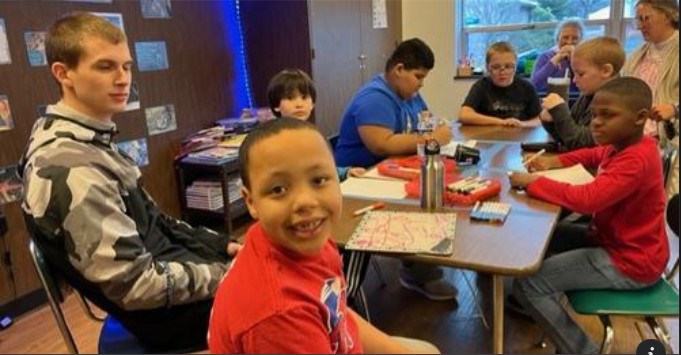
KINGSTON, LUZERNE COUNTY (WBRE/WYOU) — It’s well-documented how the pandemic has had a negative psychological and mental health impact on young people. That impact is even worse for children and adolescents living with autism.
As part of a joint reporting project with the Times Leader called Invisible Battles, Eyewitness News looks at the struggle, and the work being done to undo the damage.
Step inside a classroom transformed into a rain forest at The Graham Academy, a special education school for students with autism and behavioral challenges.
These students come from 30 different school districts. The school, founded in 2008, considers its curriculum a journey of discovery.
But part of that journey of discovery, social and emotional engagement, was sidelined for six months in 2020.
“When they were confined to the home setting, a lot of those skills that we work very diligently on were lost,” said Carol McGrane, Program Director at The Graham Academy.
“That’s a huge price to pay,” responded Reporter Mark Hiller.
“It’s a huge price to pay,” said McGrane.
Huge because it detrimentally impacted their mental health. According to research, 70% of people with autism have a mental health condition such as anxiety, depression, and attention deficit hyperactivity disorder (ADHD).
McGrane says it took a long time to get students who regressed to be able to communicate and share interactions once again with other students and adults. Some are still struggling.
“More of our higher functional students, they are more into video games and television and they have lost the social skill and cue of being able to get along with their peers,” said McGrane.
“They’re coming to the table, socializing, getting some enjoyment out of getting to know each other,” said Jason Davenport, Program Supervisor at The Graham Academy.
Davenport says he meets with classes to help them be successful. If a student is experiencing challenges, Davenport says that meeting becomes one-on-one.
“You’ve got some who are more extroverted, some more introverted, you know some that cope different ways. You know, that’s, it is, it’s very much an individual thing because the child is going to process in the way they need to,” said Davenport.

